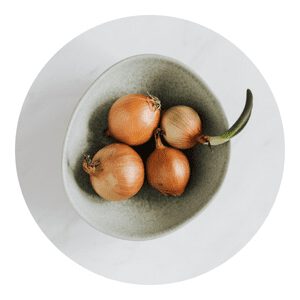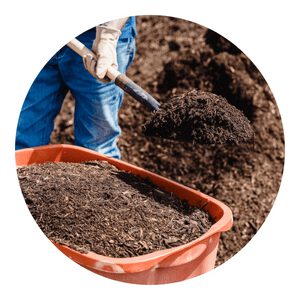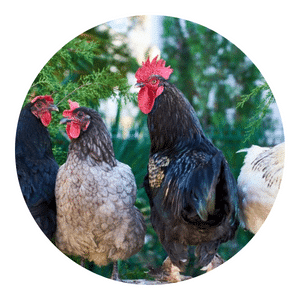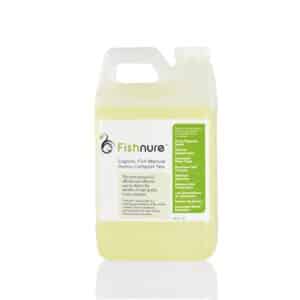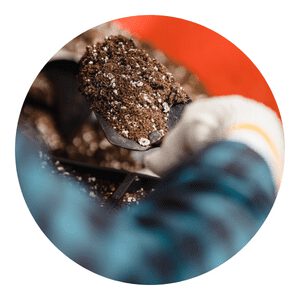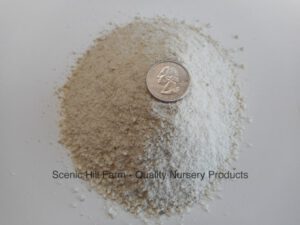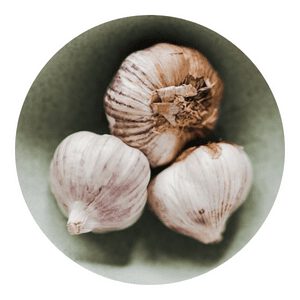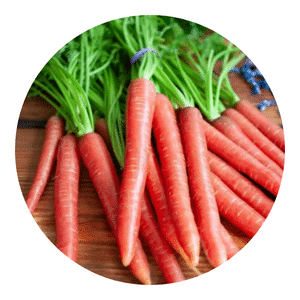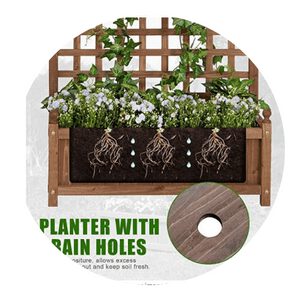What is the best organic fertilizer to use on onions?
Organic gardening is becoming more and more popular as people become concerned about the chemicals used in conventional agriculture.
If you are thinking about starting an organic garden, you may be wondering what the best organic fertilizer is to use on onions.
There are a few things to consider when choosing an organic fertilizer for onions.
The first is the nitrogen content.
Onions are heavy feeders and need a lot of nitrogen to produce large, healthy bulbs.
Look for a fertilizer with a high nitrogen content, such as blood meal or fish emulsion.
Onion Menu
Defining organic fertilizer
Organic fertilizer is made from natural materials that help promote plant growth.
This type of fertilizer typically contains things like manure, compost, and leaves.
It can also include other natural products like bone meal and kelp meal.
Organic fertilizer is a great way to add nutrients to your soil without using synthetic chemicals.
There are many benefits to using organic fertilizer. One benefit is that it helps improve the structure of your soil.
This improved soil structure leads to better drainage and aeration, which helps roots grow stronger.
Additionally, organic matter in the fertilizer helps soils retain moisture and nutrients better than synthetic fertilizers.
Organic fertilizers also tend to be more environmentally friendly than their synthetic counterparts. Synthetic fertilizers can pollute waterways and contribute to air pollution.
They can also harm helpful organisms in the soil, such as earthworms and beneficial bacteria.
The role of organic fertilizer in onion growth
Organic fertilizer can play an important role in onion growth.
Onions are a heavy feeder, and they require a lot of nitrogen to produce large, healthy bulbs.
However, too much nitrogen can cause the leaves to become yellow and stunted.
A good organic fertilizer will provide a slow release of nitrogen that will help onions grow strong and healthy without causing leaf problems.
Organic fertilizers also help improve the soil structure and increase its ability to hold water and nutrients. This is especially important in sandy soils that tend to be dry and lack nutrients.
Adding organic matter to the soil will help onions grow better and produce larger bulbs.
Finally, organic fertilizers can provide other essential nutrients that onions need for good growth, including phosphorus, potassium, and magnesium.
A well-rounded fertilizer will help onions reach their full potential and produce large, tasty bulbs.
Nutrients needed for onions
Onions are a popular vegetable that is used in many dishes.
They are a good source of vitamins and minerals, and can be grown in many different ways.
One of the most important things to consider when growing onions is the type of fertilizer you use.
Organic fertilizers are a great option for onion growers. They provide the plants with the nutrients they need to grow healthy and strong.
Some of the best organic fertilizers to use on onions include compost, manure, and blood meal.
Each of these fertilizers has its own set of benefits that can help your onion crop thrive.
Compost is rich in nutrients that onions need, such as nitrogen, phosphorus, and potassium. It also helps improve soil structure and drainage, which is important for onion growth.
Manure is another good option for providing onions with nutrients.
Organic fertilizers high in nitrogen
Organic fertilizers high in nitrogen can be used on onions to improve their growth.
Nitrogen is a key nutrient for plants, and by using an organic fertilizer that is high in nitrogen, you can give your onions the boost they need to grow larger and healthier.
There are a number of different organic fertilizers that are high in nitrogen, so you can choose the one that best suits your needs.
Whichever organic fertilizer you choose, make sure to follow the directions on the package carefully so that you do not damage your onions.
Organic farmers have long debated the best organic fertilizer to use on onions. Some swear by compost, while others prefer manure. However, the real answer may surprise you: The best organic fertilizer to use on onions is actually coffee grounds!
Chappy The Gardener
Organic fertilizers high in phosphorus
Organic fertilizers high in phosphorus are great to use on onions.
They help the onion plants to grow strong and healthy, and they also help to produce a good crop of onions.
There are many different brands of organic fertilizer, so it is important to read the labels carefully to find one that is high in phosphorus.
The best organic fertilizer to use on onions?
Organic fertilizers are becoming increasingly popular with gardeners and farmers alike.
This is because organic fertilizers are made from natural materials and therefore do not contain any chemical pollutants that can potentially harm the environment.
One of the most popular organic fertilizers is manure, which is rich in nutrients and helps to improve soil structure.
However, manure can also be high in salt, which can damage onion plants.
For this reason, it is important to choose an organic fertilizer that is specifically designed for onions.
Organic fertilizer pellets are a good choice for onion plants, as they provide a slow release of nutrients over time and are less likely to damage the plants than other types of fertilizer.
They are also easy to apply and can be found at most gardening stores. Another good option is compost, which is full of essential nutrients that will help onions to grow strong and healthy.
Compost
Adding organic matter to your onion patch is a great way to give them a nutrient boost. One of the best ways to do this is by using compost.
Compost is rich in nitrogen, phosphorus, and potassium, all of which onions need for healthy growth. It also helps improve soil drainage and aeration, both of which are important for onions.
To use compost as an organic fertilizer, simply spread it around the base of your onion plants at a rate of about 1/2 pound per 10 square feet.
Horse Manure
Horse manure is an excellent organic fertilizer for onions.
It is rich in nitrogen, phosphorus, and potassium, which are essential nutrients for onion growth.
Horse manure also contains other beneficial nutrients such as calcium and magnesium.
Applying horse manure to onion beds will help to improve yields and produce healthier plants.
Manure should be applied at a rate of 2-3 pounds per square foot and incorporated into the soil before planting.
Onions will benefit from two applications of manure per growing season – one in the spring and one in the fall.
Cow Manure
Organic onion growers have long used cow manure as a fertilizer for their crops.
Cow manure is an excellent source of nitrogen, phosphorus, and potassium, which are essential nutrients for onions.
In addition, cow manure adds organic matter to the soil, improving its structure and increasing its ability to hold moisture and nutrients.
While any type of cow manure can be used as fertilizer for onions, fresh manure is best.
Fresh manure contains more nutrients than aged manure, and it is also less likely to burn the onion plants.
Apply fresh cow manure to the onion bed in early spring, before planting. If using aged manure, apply it in fall after the onions have been harvested.
Chicken Manure
Organic farmers have long used chicken manure as a fertilizer for their onion crops.
This is because chicken manure contains high levels of nitrogen, which is essential for onion growth.
However, chicken manure can also be very high in salt content, which can damage the roots of onions.
Therefore, it is important to use chicken manure carefully and only apply it to the soil before planting.
Once the onions are in the ground, they will be able to take up the nitrogen from the chicken manure without suffering any damage.
Donkey Manure
Organic gardeners have long used manure from various animals as a fertilizer for their crops.
Donkey manure is especially beneficial for onions.
Onions are a heavy feeder, and need a lot of nitrogen to grow well. Donkey manure is high in nitrogen, as well as other nutrients that onions need, such as potassium and phosphorus.
Donkey manure also has the advantage of being relatively low in fiber, which means it breaks down quickly and becomes available to plants faster than some other types of manure.
This is especially important when you are growing onions, because you want the fertilizer to be available when the onion bulbs are forming.
If you can get your hands on some donkey manure, it’s definitely worth using it on your onion crop!
Goat Manure
Organic farmers have long used goat manure as a fertilizer for onions.
This is because manure from goats contains high levels of nitrogen, phosphorus, and potassium, which are all essential nutrients for healthy onion growth.
In addition, goat manure also adds organic matter to the soil, which helps improve its structure and drainage.
While you can find goat manure for sale at many garden centers and farm supply stores, it’s also easy to make your own.
Simply collect the droppings from your own goats (or from a neighbor’s goats), and mix them with water in a ratio of 1 part manure to 10 parts water.
Then, apply this mixture to your onion bed at a rate of 1/2 pound per 10 square feet.
Rabbit Manure
Organic fertilizer is ideal for onions because it provides a slow and steady release of nutrients, which is exactly what onions need. One of the best organic fertilizers to use on onions is rabbit manure.
Rabbit manure is high in nitrogen, phosphorus, and potassium, which are all essential nutrients for onions. Additionally, rabbit manure contains a good amount of organic matter, which will help improve the soil structure and drainage.
To use rabbit manure as an organic fertilizer, simply add it to the soil around your onion plants at a rate of 1/2 pound per 10 square feet.
Be sure to work it into the soil well so that the roots can access the nutrients easily.
Alpaca Manure
Alpaca manure is an excellent organic fertilizer for onions. It is high in nitrogen and other nutrients that onions need to grow well.
Alpaca manure also has a high level of moisture, which onions need to grow properly.
To use alpaca manure as an organic fertilizer, simply spread it around the onion plants before planting them.
You can also add it to the soil when you are preparing the bed for planting.
Be sure to work the manure into the soil well so that the roots of the onion plants can benefit from it fully.
Green Manure
Green manure is an organic fertilizer made from plant material. It can be used on onions to improve the soil quality and provide nutrients for the plants.
Green manure is a good source of nitrogen, which is essential for onion growth. It can also help to increase the organic matter in the soil, improving its ability to retain moisture and nutrients.
To use green manure as an organic fertilizer, simply till it into the soil before planting onions.
This will help to improve the quality of the soil and provide nutrients for the plants.
Green manure is a good alternative to chemical fertilizers, and can be used to organic farms or gardens.
Fish Manure
Fish manure is an excellent organic fertilizer for onions. It is high in nitrogen and phosphorus, which are two of the most important nutrients for onions.
Fish manure also contains other essential nutrients that onions need, such as potassium and magnesium.
Applying fish manure to onion plants will give them a boost of energy and help them to grow larger and healthier.
Fish manure is also known to improve the flavor of onions.
To use fish manure as an organic fertilizer, simply mix it with water and apply it to the soil around onion plants.
For best results, apply fish manure every two weeks during the growing season.
Blood meal
When it comes to growing onions, blood meal organic fertilizer is one of the best options available.
This type of fertilizer provides a range of benefits that can help your onion crop grow strong and healthy.
One of the biggest advantages of using blood meal organic fertilizer is that it provides a high level of nitrogen. This is an essential nutrient for onions, and it helps to promote growth.
Blood meal organic fertilizer also helps to improve soil structure and drainage, which are both important for healthy onion growth.
Another benefit of using blood meal organic fertilizer is that it can help to deter pests and diseases. This is because the bloodmeal contains high levels of iron, which can be toxic to many pests and diseases.
Overall, blood meal organic fertilizer is an excellent choice for anyone looking to get the most out of their onion crop.
Bone meal
Organic fertilizers are becoming increasingly popular as people strive to live more sustainable lives.
Bone meal is a type of organic fertilizer that can be used on onions.
It is high in phosphorus, which is essential for onion growth. Phosphorus helps onions develop strong roots and produce large, healthy bulbs.
Bone meal also contains calcium, which is beneficial for onions and other plants.
To use bone meal as a fertilizer, simply mix it into the soil around your onion plants. You can also add it to compost or use it as a top dressing.
Be sure to follow the instructions on the package, as too much bone meal can actually harm plants. When used properly, bone meal is an excellent organic fertilizer for onions and other plants.
How do you increase the size of an onion bulb?
One way to increase the size of an onion bulb is to use organic fertilizer. Fertilizer helps provide nutrients to the plants that they need to grow.
Another way to increase the size of an onion bulb is by watering the plant regularly. Watering helps the plant to take in nutrients and grow.
How do you increase the yield of an onion?
There are a few things you can do to increase the yield of your onions. One is to make sure they have enough space to grow. If they are too close together, they will compete for resources and not grow as well.
Another is to make sure they are getting enough water. Onions need about 1 inch of water per week.
You can also add organic matter to the soil to help with drainage and aeration. This will help the roots take up more nutrients from the soil.
In conclusion, the best organic fertilizer to use on onions is one that is high in nitrogen and low in phosphorus.
This will provide the plants with the nutrients they need to grow healthy and strong.
Additionally, using an organic fertilizer will help to improve the quality of the soil and provide a safer environment for the plants to grow in.
Organic Fertilizer FAQ
Organic fertilizer is made from natural materials that improve the quality of your soil, such as manure, compost, and leaves. Synthetic fertilizer is made from chemicals that can harm your soil, plants, and animals. Here are four reasons to choose organic fertilizer over synthetic:
1. Organic fertilizer improves the quality of your soil. Over time, synthetic fertilizers can break down the structure of your soil, making it harder for roots to penetrate. This can lead to water runoff and soil erosion.
2. Organic fertilizer is safer for your plants. Chemicals in synthetic fertilizers can burn your plants’ roots, especially if you use too much or apply them during hot weather.
3. Organic fertilizer is safer for wildlife. Animals can be harmed by eating plants that have been treated with synthetic fertilizers.
NPK stands for nitrogen, phosphorus, and potassium, which are the three essential nutrients that all plants need to thrive. NPK fertilizer is a type of fertilizer that contains these three nutrients in varying proportions, depending on the specific formulation.
Nitrogen is responsible for promoting leaf growth, phosphorus helps with root development and flowering, and potassium aids in overall plant health and vigor.
By using NPK fertilizer, gardeners can ensure that their plants are getting the right balance of nutrients to grow healthy and strong.
Fertilizers are important for plant growth and development. They provide essential nutrients that plants need to survive and thrive. Fertilizers can be organic or inorganic, and each has its own benefits and drawbacks.
Organic fertilizers are made from natural materials like compost or manure. They release nutrients slowly, so they need to be applied more often than inorganic fertilizers. However, organic fertilizers improve soil health and help build up beneficial microbes that support plant growth.
Inorganic fertilizers are made from synthetic materials like nitrogen, phosphorus, and potassium. They release nutrients quickly, so they don’t need to be applied as often as organic fertilizers. However, inorganic fertilizers can damage soil health and harm beneficial microbes if they’re not used carefully.
When it comes to fertilizers, the three key nutrients are nitrogen (N), phosphorus (P) and potassium (K). These are typically represented by the NPK value on the fertilizer package. For example, a 10-10-10 fertilizer has an NPK value of 10-10-10 and contains 10% nitrogen, 10% phosphorus and 10% potassium.
So, are higher NPK amounts better? It depends.
If your soil is already high in one or more of these nutrients, adding more of that nutrient isn’t going to help your plants. In fact, it could actually do more harm than good.
For example, if your soil is high in phosphorus and you add a fertilizer with a high phosphorus content, you could end up with an imbalance that could hurt your plants.
Organic fertilizer is made from natural materials and helps to improve the quality of your soil while providing essential nutrients for your plants.
You may need to add organic fertilizer to your garden if you notice that your plants are not growing as well as they should, or if the leaves are yellowing or falling off.
If you are unsure whether your plants need fertilizer, it is best to consult with a gardening expert. They will be able to help you determine which type of fertilizer is best for your garden, and how often you should apply it.
Organic fertilizer is a great way to add nutrients to your soil, but you may be wondering how long it will last. Here is a general guide to the shelf life of organic fertilizer:
Composted manure – 1 to 2 years
Uncomposted manure – 6 months to 1 year
Poultry manure – 6 months
Cottonseed meal – 2 to 3 years
Alfalfa meal – 2 to 3 years
Bone meal – 1 to 2 years
Seaweed/kelp meal – 1 year
As you can see, there is a wide range of shelf life for different types of organic fertilizer. In general, composted manure and cottonseed meal will last the longest in your soil, while un composted manure and poultry manure will break down more quickly. Bone meal and alfalfa meal are somewhere in the middle.
If you want your flowers to stay healthy and vibrant, you should fertilize them regularly. But how often should you fertilize them?
It depends on the type of fertilizer you’re using. If you’re using an organic fertilizer, you should fertilize your flowers every two weeks. If you’re using a chemical fertilizer, you can fertilize them every week.
Either way, it’s important not to over-fertilize your flowers. too much fertilizer can burn their roots and damage their leaves. So, be sure to follow the directions on your fertilizer label carefully.
It is generally recommended to fertilize vegetables once a week. However, some vegetables may need to be fertilized more or less frequently depending on the type of vegetable and the specific growing conditions.
For example, leafy greens may need to be fertilized more often than root vegetables. In general, it is best to err on the side of too little fertilizer rather than too much. Over-fertilizing can lead to nutrient burn, which can damage plants.
Click To Grow
Helps Us Grow – Share If You Like






